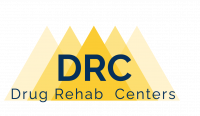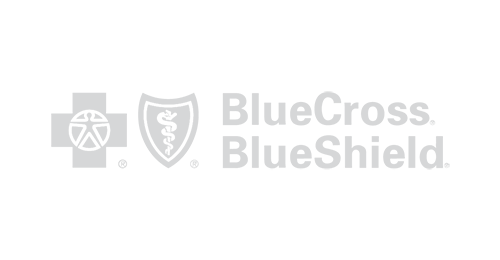Cocaine Rehab & Addiction Treatment
Cocaine is a powerful stimulant that delivers a brief and exhilarating high and often leads to addiction warranting cocaine rehab.
This highly addictive narcotic is derived from the leaves of the coca plant and remains legal for some medicinal uses. Due to its strong potential for abuse and addiction, cocaine is classified under schedule II of the Controlled Substances Act.
Each year, SAMHSA (the Substance Abuse and Mental Health Services Administration) conducts the National Survey on Drug Use and Health. NSDUH 2019 data shows that almost 5.5 million people in the US reported past year cocaine use, with nearly 2 million reporting past month cocaine use. The most recent data from NSDUH 2020 shows a significant decline in cocaine use, both past month and past year.
If you have moved beyond the occasional use of cocaine and you develop stimulant use disorder – the clinical descriptor for cocaine addiction – what can you expect in terms of cocaine addiction rehab?
What to Expect at Cocaine Rehab?
Treatment for cocaine addiction will begin with detox. The cocaine detoxification phase for cocaine usually lasts just a few days. With more severe stimulant use disorders, withdrawal symptoms may persist for a week.
By purging your system of the toxins and toxic metabolites created through sustained substance abuse, you’ll be in stronger physical shape to proceed with rehab for cocaine addiction.
While it is possible to detox from cocaine at home, medical detox is normally recommended. Cravings for cocaine can be intense during withdrawal. Detoxing in a clinically-supervised setting ensures you have sufficient medical and emotional care during this challenging initial phase of cocaine rehab.
Detox is the crucial first step toward recovery from stimulant use disorder, but it’s also the beginning of an ongoing process.
How long is rehab for cocaine once you are detoxed?
Well, this will depend on whether you choose to engage with inpatient or outpatient treatment, and at what level of intensity.
Those with severe stimulant use disorders, co-occurring mental health disorders, or unsupportive home environments would benefit from inpatient treatment. Mild and moderate cocaine addiction respond favorably to outpatient treatment. Research shows that intensive outpatient treatment is equally as effective as residential rehab for most milder addictions.
Before we outline the key differences between inpatient and outpatient cocaine rehab, what sort of treatments work for cocaine addiction?
Treatment Options for Cocaine Addiction
Unlike with alcohol use disorder and opioid use disorder, there are no approved pharmacological interventions for stimulant use disorder. Research in this area is vigorous and ongoing, with both naltrexone and buprenorphine showing promise.
In the absence of any FDA-approved medications to streamline treatment, the primary therapies used to treat cocaine addiction are behavioral interventions.
SAMHSA recommend the following therapies for the treatment of stimulant use disorder:
- Psychotherapy: Through sessions of CBT (cognitive behavioral therapy), you’ll learn to identify and avoid triggers for cocaine use. Your therapist will impart healthier coping mechanisms so you can pursue your recovery without relapsing.
- Motivational interviewing: This form of behavioral intervention can be beneficial in the early stages of recovery from stimulant use disorder. Motivational interviewing can help you overcome feelings of ambivalence toward recovery, engendering a more positive and optimistic outlook.
- Contingency management: The abuse of stimulants like cocaine disrupts the brain’s reward circuitry. Contingency management incentivizes healthy behaviors like passing a drug test with small rewards.
- Community reinforcement: Treating cocaine addiction through community reinforcement helps you to create a supportive sober network.
So, just because there is no medication to treat cocaine addiction, you can combat this fiercely psychological addiction through psychotherapy, counseling, and the other therapies above.
Now, how about the difference between inpatient and outpatient cocaine rehab?
Inpatient Treatment for Cocaine Addiction
Inpatient treatment, also known as residential rehab, is the most intensive form of treatment on ASAM’s continuum of care.
During inpatient cocaine rehab, you’ll remain at the treatment facility for anywhere from 30 to 90 days, taking you from detox to discharge.
For those with severe stimulant use disorders and co-occurring disorders, around-the-clock access to medical professionals provides the most secure environment for recovery.
Days in residential rehab are highly structured with both individual and group counseling sessions as well as psychotherapy sessions and other behavioral interventions throughout the day.
Many people step down from inpatient treatment to a less intensive level of care, while others transition directly back into daily living or a sober living community.
Fortunately, most people grappling with cocaine addiction don’t need residential rehab, though.
Outpatient Treatment for Cocaine Addiction
Outpatient cocaine rehab offers you access to the same services and therapies as you find in residential rehab, but without the cost or the restrictions.
Unlike with residential rehab, you attend outpatient treatment sessions at a rehab center and then return home or to a sober living home between sessions.
The most common outpatient programs are as follows:
- OP (outpatient program): 2 or 3 hours of weekly therapy.
- IOP (intensive outpatient program): 12 to 15 hours of weekly therapy.
- PHP (partial hospitalization program): 30 to 35 hours of weekly therapy.
Cocaine Poisoning Treatment
Cocaine overdose treatment is crucial if you or a loved one takes too much of this powerful stimulant narcotic.
Oftentimes, the symptoms of a cocaine overdose mirror the effects delivered by the drug. These include:
- Exhilaration
- Irritability
- Paranoia
- Depression
- Anxiety
You should also look out for any of the following signs of cocaine poisoning:
- Elevated heart rate
- Chest pain
- Headaches
- Twitching
- Unremitting energy
- Raised blood pressure
- Confusion
- Agitated movements
- Teeth grinding
Cocaine overdose can trigger a variety of health issues from heart attack and stroke to seizure and death.
NIDA reports that deaths related to cocaine overdose in the United States reached the highest level since 1999, with over 15,000 deaths set against just 3,822 deaths in 1999.
You should seek immediate medical assistance if you suspect you or a loved one has overdosed on cocaine.
Cocaine Addiction Treatment with Drug Rehab Centers
If you have been unable to find a suitable cocaine addiction treatment center, we can help you at Drug Rehab Centers.
We can connect you with licensed medical detox centers near you, enabling to address the physical aspect of cocaine addiction.
Once you are detoxed, we can help you find the right inpatient or outpatient cocaine addiction treatment program in California.
For more details and specifics of the treatment programs available, reach out to us online or call (844) 739-2005 for immediate assistance.
Rehab Center Programs
Recent Posts
Begin Treatment For Cocaine Abuse
Don't hesitate to call our admissions counselors are available 24/7 to help with any questions regarding rehab, insurance coverage, and beginning recovery
Cocaine Addiction Treatment Programs Include
With access to numerous evidence based therapies our team of heroin addiction experts can create an individualized treatment program to promote lasting and fulfilling recovery.




